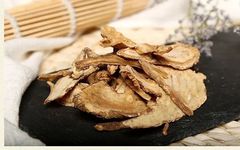
In the thousands of years of Traditional Chinese Medicine (TCM) culture, there is a herb known for its unique effects in invigorating and replenishing blood, widely used in gynecology and praised as the “ginseng for women”; this herb is Dang Gui (Angelica Sinensis).
In spring, as Yang energy begins to rise, the human body often experiences Yang deficiency and Yin decline, leading to insufficient Qi and blood. In addition to fatigue, dull complexion, and acne, women may also experience disruptions in their menstrual cycle and changes in bleeding volume.
Spring is also a good season for nourishing Qi and blood. In our daily lives, Dang Gui can be used as medicine, but regularly drinking Dang Gui infused water can bring many benefits to the body.
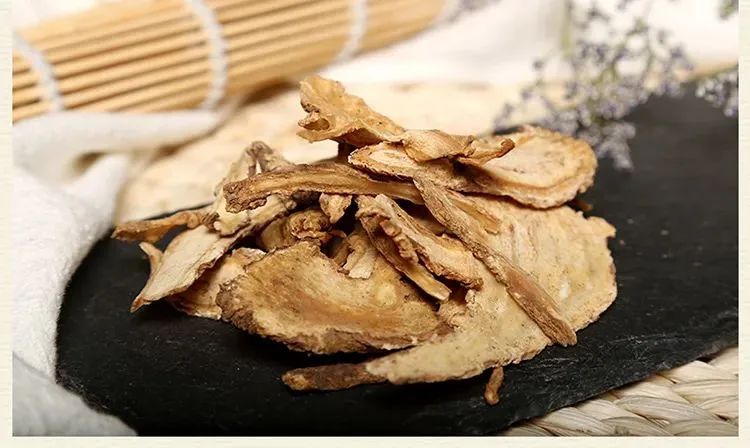
Understanding Dang Gui
Dang Gui, the root of the plant from the Apiaceae family, is one of the most commonly used Chinese herbs.
Depending on the medicinal parts, Dang Gui can be subdivided into Dang Gui Tou (head), Dang Gui Shen (body), and Dang Gui Wei (tail). If not differentiated, the whole herb is referred to as Quan Dang Gui (whole Dang Gui).
The authentic characteristics of Dang Gui include a horse-tail shape, a round head with a long tail, a yellow-white cross-section, plumpness, and a fragrant aroma.
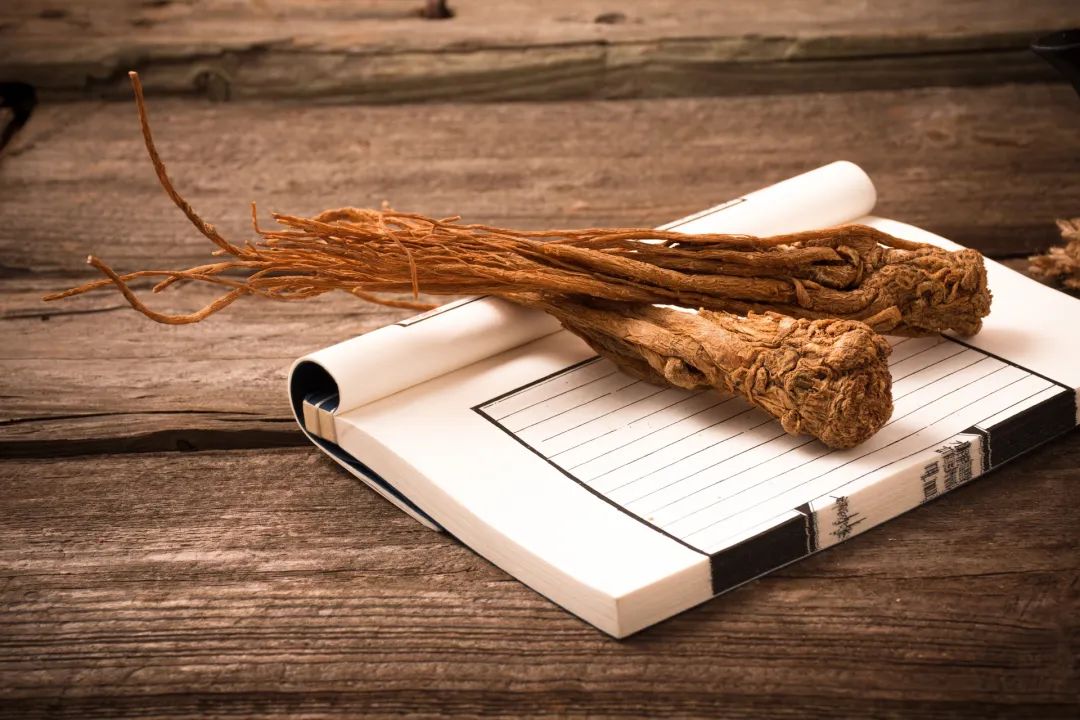
According to the Dictionary of Chinese Medicinal Herbs, Dang Gui: “The dried root can be divided into three parts: the head is called ‘Gui Tou’, the main root is called ‘Gui Shen’, and the lateral roots and their tips are called ‘Gui Wei’. The best quality has a large main root, long body, few lateral roots, a yellow-white cross-section, and a strong aroma. Inferior quality has a small main root, many lateral roots, a weaker aroma, and a red-brown cross-section.”
Historical Records
Throughout history, practitioners have summarized its properties as: sweet, pungent, slightly bitter, and slippery, with the ability to ascend and descend. It enters the Heart, Liver, and Spleen meridians. It nourishes blood and moistens dryness, primarily affecting the Heart channel. It nourishes Heart Yin and Liver Yin.
The Shennong Bencao Jing states: Dang Gui, also known as Gan Gui, has a sweet and warm taste, grows in river valleys. It treats cough, counterflow Qi, warms malaria, alleviates skin issues, and is beneficial for women with menstrual issues and various sores. It is to be boiled for drinking.
The Bencao Gangmu: treats headaches, abdominal pain, moistens the intestines and stomach, benefits muscles and skin, treats carbuncles, drains pus, alleviates pain, and harmonizes and replenishes blood.
The Yixue Qiyuan: Dang Gui, with a warm Qi and sweet taste, can harmonize and replenish blood, with the tail breaking blood and the body harmonizing blood.
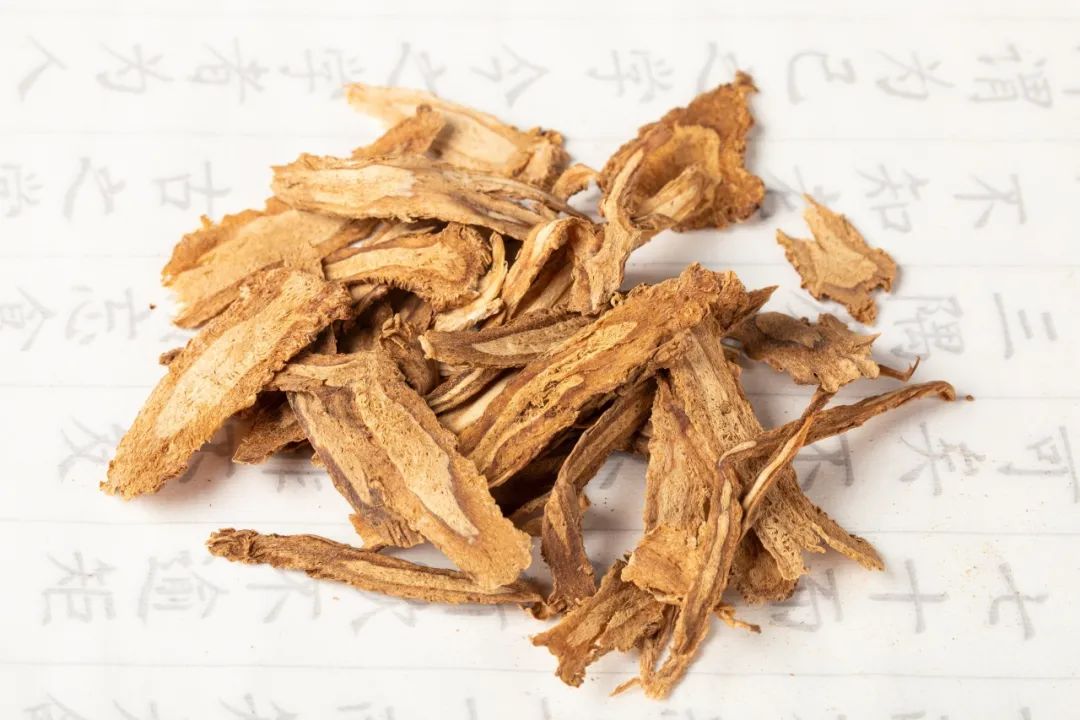
The Annotations on the Treatise on Cold Damage: The pulse is the residence of blood; all blood belongs to the Heart. Therefore, to open the pulse, one must first nourish the Heart and benefit the blood. Thus, Zhang Zhongjing treated cold extremities with Dang Gui to warm and assist Heart blood.
The New Compilation of Materia Medica: Dang Gui, with a sweet and pungent taste, warm Qi, can ascend and descend, is Yin among Yang, and is non-toxic. Although there are distinctions between the upper and lower parts, it still serves to replenish blood uniformly. It enters the Heart, Spleen, and Liver organs. However, its nature is very active; when combined with Qi tonics, it replenishes Qi, and when combined with blood tonics, it replenishes blood, without a fixed function.
The Chinese Pharmacopoeia records: Dang Gui “enters the Heart, Liver, and Spleen meridians”, effectively “replenishing blood, invigorating blood circulation, moistening the intestines, and regulating menstruation to alleviate pain”.
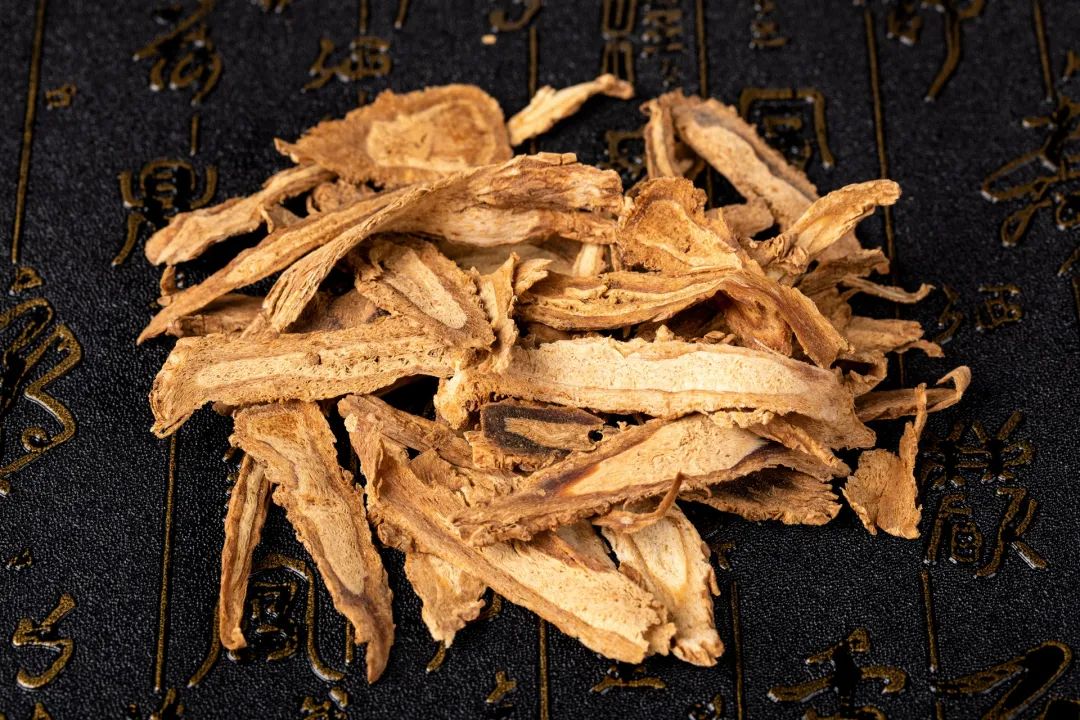
Incorporating Dang Gui into Meals
Dang Gui can be powdered and used to brew tea or added to soups and porridge. It can also be used in marinated dishes, primarily to eliminate odor, enhance fragrance, and add medicinal aroma to meat products.
01 Dang Gui Hawthorn Soup
Ingredients: Dang Gui 12g, red dates 10g, hawthorn 12g.
Method: Soak the red dates until plump, wash clean; wash the hawthorn and Dang Gui. Place the red dates, Dang Gui, and hawthorn in a clay pot, add water, bring to a boil, then simmer on low heat for 1 hour.
02 Dang Gui Red Date Egg Soup
Ingredients: Dang Gui slices 10g, pitted red dates and longan meat each 20g, 1 egg, appropriate amount of brown sugar.
Method: Soak the red dates, longan meat, and Dang Gui in clean water, then wash. In a pot, add appropriate clean water, bring to a boil, add the egg, and cook until done. After peeling the cooked egg, add it along with the remaining ingredients to the pot and simmer. After 10 minutes, add brown sugar to taste.
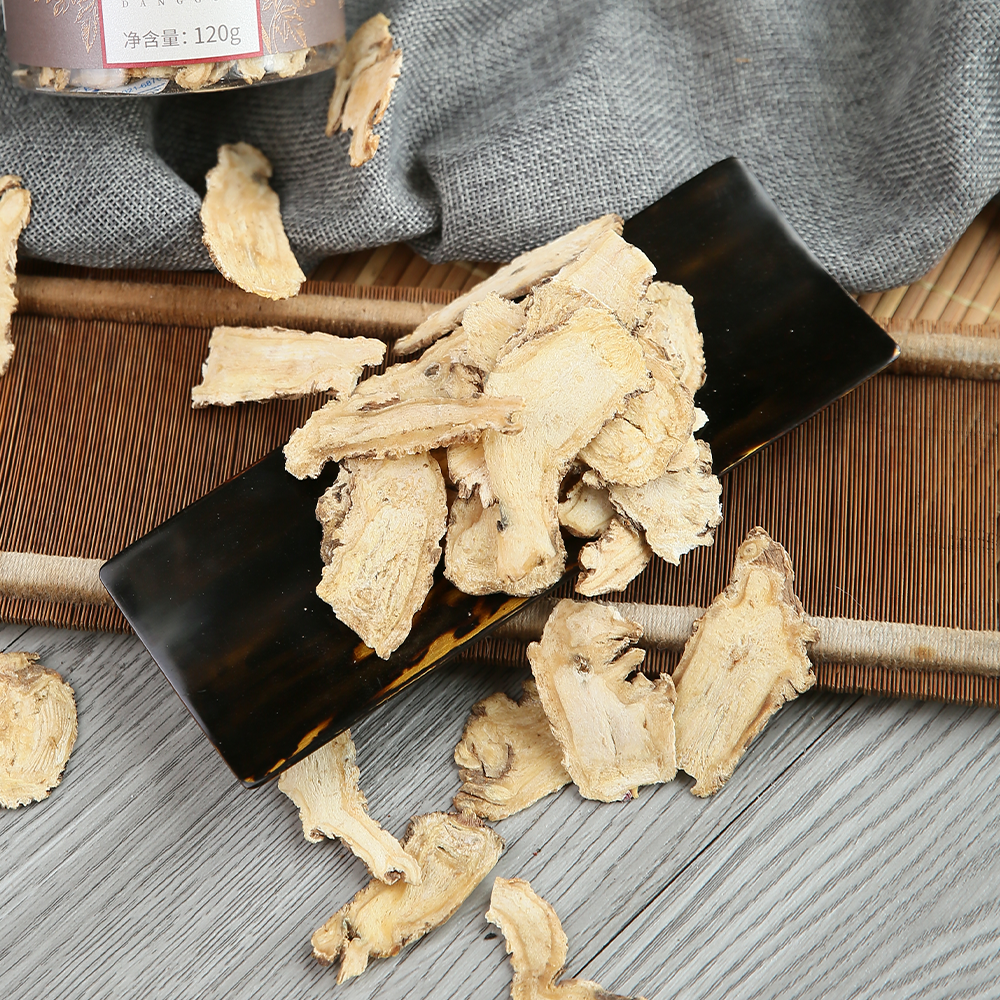
Precautions
1. The amount of Dang Gui used for brewing should not be too large.
When using Dang Gui for brewing, it is important to note that the dosage should not be excessive. Whether used as a food or medicinal ingredient, it should never be overused.
Excessive consumption of Dang Gui may not only fail to promote quick recovery but may also lead to side effects, such as fatigue or drowsiness.
2. Dang Gui can moisten the intestines and promote bowel movements; therefore, those with diarrhea should use it cautiously.
3. Dang Gui may cause stagnation of Qi in the Spleen and Stomach, leading to bloating and indigestion; thus, those prone to indigestion or bloating should use it cautiously.
4. Dang Gui is warm in nature; although it generally does not cause heat symptoms in most people, those with symptoms of heat such as toothache or sore throat should use it cautiously to avoid exacerbating their condition.
5. To prevent introducing pathogens, those with colds or fevers should use Dang Gui cautiously; as Dang Gui both nourishes and invigorates blood, it is not suitable for patients with various bleeding disorders, excessive menstruation, or a tendency to bleed. It should not be used during menstruation!
Disclaimer: This article is compiled from various online sources for learning and reference purposes only and cannot replace medical advice or prescriptions. Please use under the guidance of a physician. The sharing aims to disseminate health knowledge; if there are any objections, it will be deleted.


